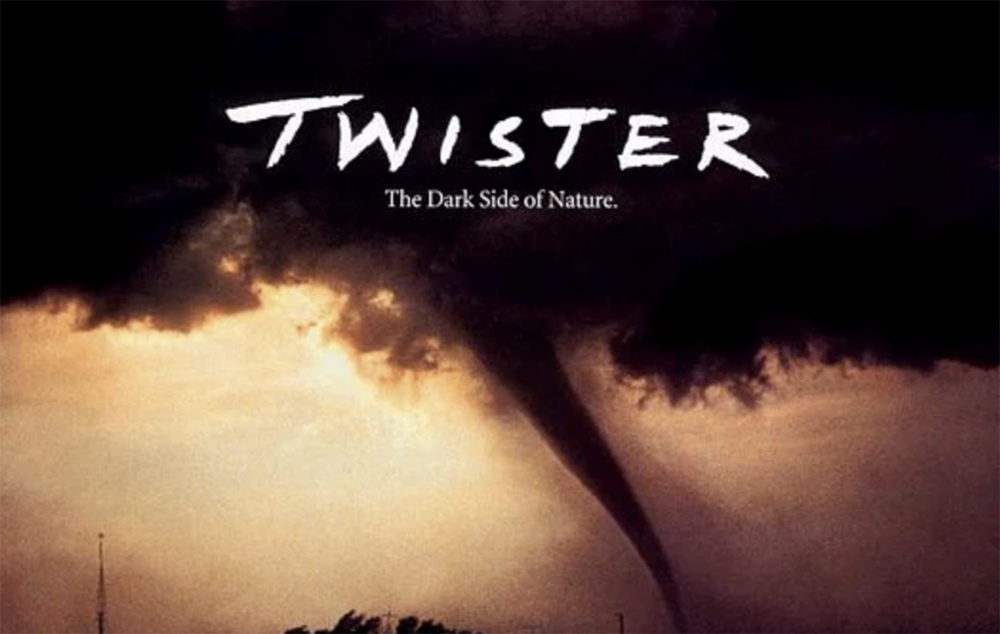By Directors Guild contract, I had ten weeks to deliver my cut of Spy Hard. At the insistence of my exec, I handed in an eighty-page list of modifications, voice-overs, superimposed title jokes, and a new spoof of Mission: Impossible, knowing the original was slated to be released the same weekend as Spy Hard.
I went to a meeting to present this to my exec and his boss, the president of Hollywood Pictures. Before I could read through my list of changes, my exec surprised me with two documents—lists of suggested changes written by the writers of The Santa Clause and by his friend who had directed Saturday morning children’s TV shows.

Then I read through my changes to a totally silent room.
The following morning I received a phone call from my exec: “Rick, the studio is taking over your movie.” He continued, “It’s nothing personal. The movie has to have a broad audience.” I was enraged, “Our audience is youths between junior high and college age, primarily male. Always was. Always will be.” He was unfazed, “We want every movie we make to sell as many tickets as we can.”
Nothing personal? I guess that’s true of Hollywood—nothing is personal. Calling it cold or cruel is like calling Bashar al-Assad mischievous.
What I didn’t know is that I was fireproof. By Directors Guild contract, if you direct 90 percent of principle photography, you cannot be replaced. I’d directed 100 percent. But, at that time, I didn’t know what my DGA rights were.
My next phone call was to my agent, the head of UTA. He told me, “this exec is going to bad mouth you whether you fight him or not. Don’t leave the job. They’re going to fuck your film up anyway. You might as well take your licks and avoid any stigma.” I wish I had followed his advise.
I fired my manager/co-producer by letter that morning. The manager phoned my lawyer and said, “I had no choice but to side with the studio.” My exec actually told the manager words I’d heard used before in jest: “If Rick doesn’t step down, I’ll bury him. He’ll never work in this town again.”
Holy shit! People actually said that. I thought it was a joke. It wasn’t.
My line producer was rushing to mount a week of reshoots—new jokes to replace some of mine. Six of one, a half dozen of the other.
I received a phone call from one of the assistants I’d befriended. She was in tears and told me, “Your manager has been on the phone all morning, phoning every studio exec and agent he knows, telling them he had to fire you and hire his other client to finish the film.” This was her first job. A rude awakening for me, shock and horror for her.
The reshoots were sent to me every day. This director was a hack. He never shot more than two takes and applauded after each one even though they were all crap.
Then there was yet another preview—the movie was much shorter, which always helps. Just before the preview, we viewed the trailer, which included only scenes I’d directed. It was terrific! So we actually looked forward to the preview. The preview audience was the one I had cried out for: mostly male, between fourteen and twenty-four. They laughed a lot. But the cards at the end were worse than either of my first two previews. There was no ending in this version of the film—one of the primary reasons to hire the moron that directed the reshoots.
I stayed after the preview for the focus group and unleashed a hurricane on the studio exec: “There is no ending. Half the jokes that were replaced didn’t get a murmur.”
Posters appeared on every billboard and bus bench in L.A., my name prominently displayed. My lawyer consoled me, saying, “This is going to open huge.” I gave him an analogy: “What if your teenaged daughter, the light of your life, was all dressed in the finest designer clothes for the prom, bedecked in jewelry fit for a queen and advertised as the ‘it girl,’” but only shortly after being irreparably brutalized by a horde of Orcs? That’s what they did to me.”
Spy Hard opened in third place behind Twister and

Mission: Impossible, ahead of Striptease. It went on to gross over $27 million domestic in four weeks, competing against The Nutty Professorwith Eddie Murphy, The Cable Guy with Jim Carrey, and The Rock with Sean Connery, directed by Michael Bay.
It opened number one at the box office in England, Germany, Italy, Spain, Brazil, Thailand, Venezuela, and Argentina, and went on to gross over $86 million worldwide, when tickets averaged five bucks instead of ten.
The total gross for Spy Hard, including pay TV and home video, was over $130 million on a budget of $20 million and a $15 million ad campaign. That’s a lot of profit. The studio sent me reports for the first two years. Each time the report displayed more income, the displayed costs were even higher, even though no additional money was spent. It’s one thing to cook the books, but in this case, there must have been an entire cookbook with detailed recipes for frying, broiling, and baking the books.
To be a director, one has to have prettty thick skin. You really have to grow up and participate in this business from the time you’re twelve to realize that everyone is out for themselves to an exponential degree more than in any other business. Well, there is always politics . . . the kind in government.


Recent Comments